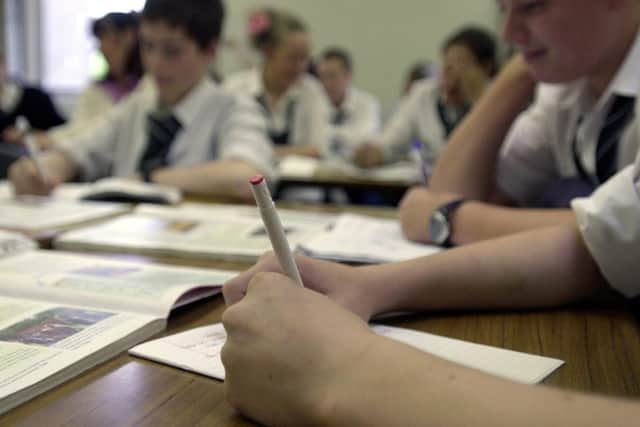Mental health is a growing issue amongst young people but GCSE results show their resilience - Julia Polley
Our school is in Leyburn which sits in the heart of Wensleydale, North Yorkshire. We’re a relatively small school covering a huge catchment area and we play a key role in our rural community. The pandemic took its toll on our students’ mental health including many of those who are celebrating their results, but like many schools across Yorkshire, we fought back.
Children’s mental health has been on the decline for some time due to a number of socio-economic factors such as poor diet, poor sleep, low income, social media, loneliness and the list goes on. Then Covid came along and hugely compounded this existing problem – especially the loneliness and isolation element. The one good thing to come out of the pandemic has been that this mental health crisis has been brought to the fore. It has become an important issue with more research, information and support becoming available all the time.
Advertisement
Hide AdAdvertisement
Hide AdOur own experience at Wensleydale mirrored the majority of the country, with the number of students with mental health issues doubling over those two years – for us it went from 20 to 40 per cent. We saw increasing numbers of students showing signs of anxiety, depression, tension and stress. In finding solutions to support our students we realised that we have a number of factors in our favour.


Our school takes in children from an area of 900 square miles – if this was a city it would have 80 secondary schools servicing it. Despite this, we are still very much a small community school. I live in the catchment area, just two miles from the school itself and in my seven years as headteacher I have made it my business to get to know my students and their families.
I meet with local community groups, to make sure they are aware of our work and ethos and to make myself visible and approachable. This means students and their families feel comfortable coming to me the minute any issues arise, knowing that I will not only give them my time, but also work with them to find immediate solutions. This relationship and the trust I have built within the community has been pivotal in helping me spot the mental health problems and work with my team to offer the support our students need.
We have initiated a wellbeing questionnaire which is circulated to students each term, so that we can measure how they are doing and address the areas that are lacking.
Advertisement
Hide AdAdvertisement
Hide AdOur most recent initiative has been to instigate weekly lunchtime peer mentor sessions in our new wellbeing space. We have many students who are passionate about mental health and are keen to support others who may be struggling, feeling isolated or worried. Students can drop in, have a hot drink and chat in confidence. The sessions are facilitated by our mental health nurse and have proven to be very popular from the outset.
There is no quick fix for this mental health crisis, but yesterday’s results confirm something we all know - young people are resilient and with the right support, they can persevere and overcome challenges.
Julia Polley is headteacher at The Wensleydale School.